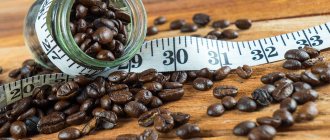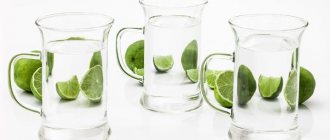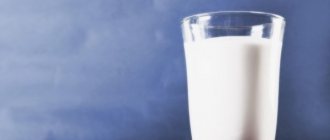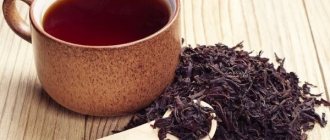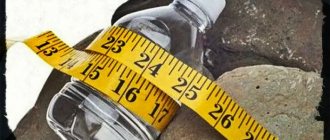About sports fashion
Nowadays, smoking, drinking large quantities of alcohol, being sick, and earning little has simply become unfashionable.
Now, in addition to the fashion for gadgets, clothes and high incomes, there is a fashion for good sportswear, a toned figure, and correct posture. It is difficult to find a magazine that does not contain information about various diets and sports training. An athletic figure is considered the standard of beauty. As a result, the number of fitness clubs and sports sections in the country is growing. The issues of training high-class athletes are resolved at the government level. And at the local government level - the availability of children's sports complexes on playgrounds in courtyards. While a person is young intellectually and physically, as long as he is healthy, he is more valuable on any competitive platform, especially if life experience has provided a high level of professionalism. And modern reality is much stricter about who can do their job more professionally.
We are already witnesses to the fact that even at the age of 60, many famous figures start new families, give birth to children, create and multiply businesses. A certain standard of modern aging has emerged. This was simply impossible in the very recent past. Maintaining your health in our time is possible, including through competent exercise, giving up bad habits and, in general, thanks to a conscious approach to your health.
On the importance of water consumption during physical activity
On our website dedicated to water and water treatment, we cannot ignore the issue of the importance of water consumption during physical activity. First of all, we will talk about the consumption of drinking water during sports activities, as well as the drinking regime of those whose professional activities involve physical labor.
The issue of water consumption during high physical activity, primarily cyclic and interval, raises many questions and debates both among athletes and athletes, and among doctors. With sweat and intense breathing, the body loses a lot of moisture, but on the other hand, when fat is broken down, water is produced, thereby partially compensating for fluid loss. The question of specific water consumption is individual. If there is a lack of water during sports, the blood thickens, it transfers oxygen to working muscles worse, it becomes more difficult to remove waste products from the muscles, and energy losses for heat removal increase significantly. Also, blood pressure seriously increases and there is no loss of fat deposits, since due to lack of fluid they are simply not included in the process of energy supply to the athlete’s working muscles. However, water consumed between approaches to the exercise relaxes the working muscles, its excess leads to a feeling of heaviness in the stomach, and increases general fatigue. Conclusion - you need to drink, but you need to know the norm. It is better to drink more often and in small portions, not too much, so that the feeling of dry mouth disappears.
Drinking during training: benefit or harm?
The question of whether it is possible to drink water during training has always caused heated debate in sports circles. Some athletes insist that they should not drink water during training, as this can be harmful to the body. There is some truth in these words.
Scientists from the Georgetown University Medical Center (USA) even found a reason why you should not drink water during exercise. According to the results of their research, excess water in the body can cause water poisoning. The fact is that many athletes drink water or special sports drinks during training, but do not know how to do it correctly. This can lead to what is called hyponatremia, a condition in which the kidneys cannot excrete as much fluid as the person drinks. At the same time, completely refusing to drink during the training process is also harmful to health, as it can cause dehydration, which is even worse. For this reason, medical professionals believe that you should still drink water during exercise, but you need to do it correctly.
The role of water in the body's thermoregulation
During intense exercise, the human body initiates thermoregulation processes and loses a lot of fluid. To understand why you should drink water during exercise, you need to know the mechanism by which sweating is regulated. It is carried out as follows. During exercise, muscles contract and produce large amounts of heat. The blood that circulates in the muscle tissue begins to heat up and enters the general bloodstream. When heated blood enters the brain, it begins to affect the receptors in the hypothalamus, which respond to increased blood temperature. Receptors in the hypothalamus send signals to the sweat glands, and they begin to actively produce sweat.
During the process of intense evaporation of sweat from the surface of the skin, a general cooling of the body occurs. Therefore, for an effective process of thermoregulation and replenishment of water balance in the body, a person needs to drink water during training in the optimal amount. Dehydration during exercise can lead to a sharp deterioration in well-being, dizziness, muscle cramps and spasms, and in more serious cases, heat stroke and loss of consciousness.
To protect yourself and others from dehydration and prevent unwanted consequences, you should be aware of the signs that may indicate that the human body urgently needs water.
The first signs of dehydration include:
- dizziness and headache;
- heat intolerance;
- dry cough, sore throat and dry mouth;
- changed, darker color of urine with a strong odor;
- pain and burning in the stomach, loss of appetite;
- general fatigue.
More dangerous signs of dehydration include:
- numbness of the skin and limbs;
- muscle spasms and cramps;
- blurred vision;
- painful urination;
- difficulty swallowing;
- hallucinations.
Be sure to pay attention to such manifestations of poor health and physical condition, this will help protect against dehydration.
Liquid consumption norms
There are no strict rules for how much water to drink during training. The main rule here is that you need to drink according to your needs. Depending on where your workout takes place, your body may have different needs for water.
During training in a gym with heating devices running and low air humidity, thirst may arise in the first minutes of being there. On the contrary, training outside or in a well-ventilated area with normal air humidity may not cause such a strong desire to drink water. In any case, if you feel thirsty during exercise, this is an indicator that the body needs to replenish its fluid supply. The amount of liquid you drink should saturate the body with moisture, but not cause a feeling of heaviness.
In this regard, a new question arises - how to properly drink water during training? When a person begins to actively sweat during exercise, a feeling of thirst arises almost instantly. However, you should drink water in small sips of 100-150 milliliters at a time, every 15-20 minutes. Of course, you can drink much more fluid if the feeling of thirst does not go away, but in this case heaviness may occur, which will interfere with the intensity and effectiveness of the exercises.
Remember: the absence of thirst during exercise does not always indicate a sufficient amount of water in the body. Therefore, in any case, drinking water during training is mandatory.
The table shows the approximate daily requirement of the human body for water.
| Human weight | Daily human need for water | ||
| Low physical activity | Moderate physical activity | High physical activity | |
| 50 kg | 1.50 liters | 2 liters | 2.30 liters |
| 60 kg | 1.80 liters | 2.35 liters | 2.65 liters |
| 70 kg | 2.25 liters | 2.50 liters | 3 liters |
| 80 kg | 2.50 liters | 2.95 liters | 3.30 liters |
| 90 kg | 2.85 liters | 3.30 liters | 3.60 liters |
| 100 kg | 3.15 liters | 3.60 liters | 3.90 liters |
Maintaining water balance during drying
Athletes preparing for competitions are particularly concerned about the question: is it possible to drink water during dry training? If you are at the drying stage, then the amount of water you drink during training and throughout the day should be increased, no matter how paradoxical it may seem. The human body works on the principle of storing water when its supply is low. It turns out that if you sharply limit your water intake, the body will not “dry out”, but rather “swell” from the excess of stored water. To dry effectively, you need to increase your water consumption to 3-4 liters per day. This is exactly the amount of water the body needs so that it consumes and removes fluid without trying to store it. Moreover, if you are dehydrated, you simply will not be able to train effectively, the risk of injury will increase, and you will lack strength and energy.
Answering the question that concerns many beginning CrossFitters about whether it is possible to drink water after a workout, it should be noted that it is possible and even necessary to drink water after a workout. After training, the body is at the stage of maximum dehydration; along with sweat, a person loses about 1 liter of fluid. Therefore, after training you need to drink as much as your body requires. Scientific research confirms the fact that the amount of fluid consumed is individual for each individual, so you should drink water as much as you want and when the need arises. Moreover, the experiments of Dr. Michael Farrell from Melbourne confirm that a person consumes exactly as much water as his body needs during the day, so there are no and should not be any strict restrictions on the amount of water drunk.
Water for weight loss: truth and myth
Many people who come to sports to lose weight are interested in whether it is possible to drink water during exercise to lose weight. If the goal of your exercise is to lose weight, the amount of water you drink during and after training should also not be limited. A strictly defined amount of water consumed during and after training for weight loss is nothing more than a marketing ploy aimed at increasing sales of water and special drinks. In the process of losing weight, a significant role is played by the metabolic rate, which increases significantly not only during and after intense training, but also from drinking enough fluid during the day. For effective weight loss, protein diets are usually used in combination with plenty of regular drinking water in the diet. It is this kind of diet that not only helps you get rid of extra pounds, but also helps eliminate the “orange peel effect” on problem areas.
What are the consequences of improper or insufficient water consumption?
A person who exercises must understand that his body must have enough water both during exercise and before and after. This water should compensate for fluid losses that occur during intense physical activity. The more water you lose, the worse your training performance. This is especially important during prolonged intense physical activity.
The water consumed by athletes must have a good mineral composition to compensate the body for the loss of calcium, potassium, magnesium and sodium salts.
Water and muscle definition
Even with proper nutrition, those who are preparing for competitions, or just for the summer season, nullify all efforts to make their muscles sculpted due to excess water, the figure looks slightly plump, as if there were fatty deposits, but in fact it’s just water .
How can we get rid of this? The logical answer is to drink less?! Just no, the paradox is that in order for water to be retained in the body to a minimum, you need to drink a lot of it, at least 3 liters of water daily.
With this consumption, the body begins to work hard to get rid of excess water, leaving only the minimal part that is needed to ensure vital processes, and the metabolism also accelerates, promoting the burning of fat deposits, but this is subject to playing sports, when a lot of calories are spent, lying on the sofa, this is all before the light bulb!!!
If, on the contrary, you start drinking very little, the body will understand that something is wrong and will begin to accumulate liquid as a strategic reserve, preparing for something and it will work out - they wanted the best, but it turned out as always


